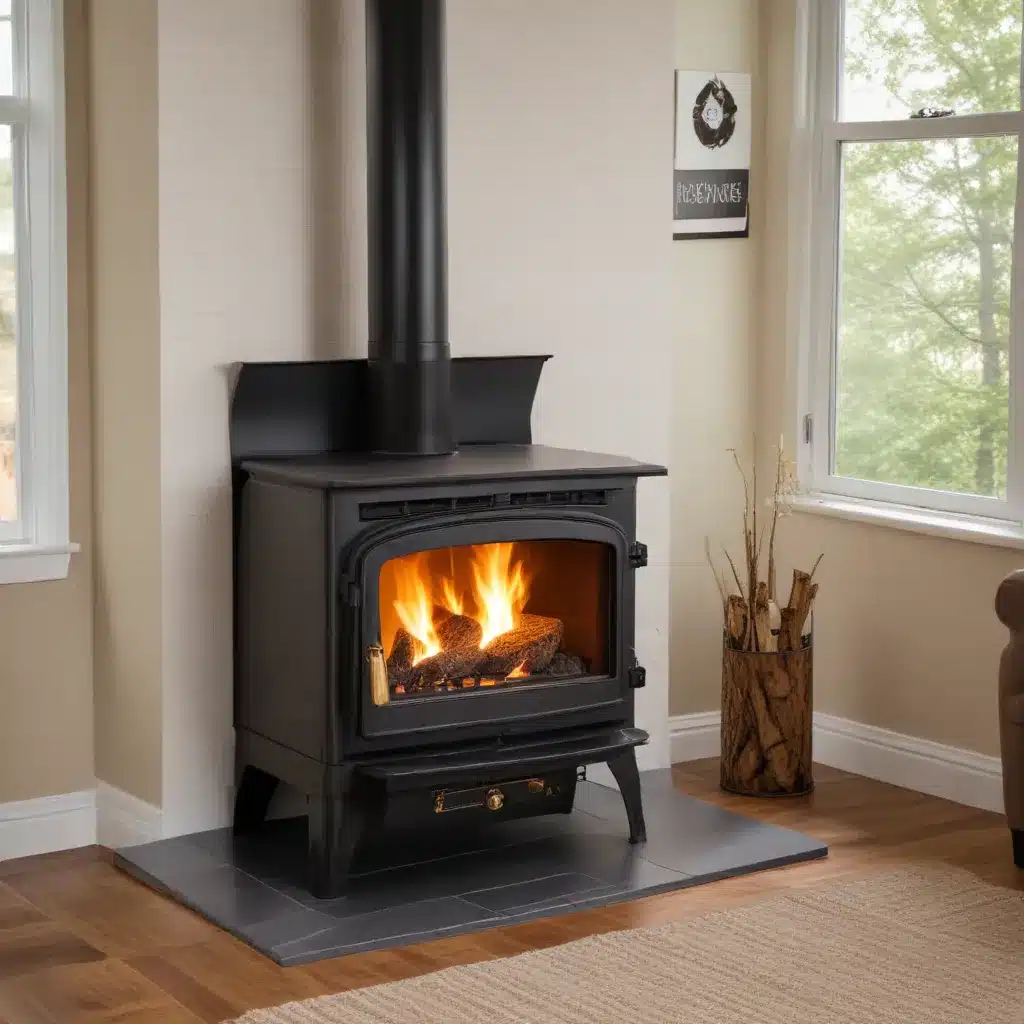
Unlocking the Potential of Eco-Friendly Biomass Heating
As a seasoned expert in wood stoves and heating solutions, I’m excited to share insights into the latest advancements in certified wood stove technology. In today’s world, where energy efficiency and sustainability are paramount, the role of wood stoves in providing renewable and cost-effective home heating has never been more crucial.
Revolutionizing Pellet Stove Performance
One of the most significant developments in the wood stove industry is the emergence of highly efficient pellet stoves. Brands like Regency have been at the forefront of this innovation, introducing products like the Regency Hampton Large Cast Iron Biomass Pellet Stove. This environmentally-friendly heater combines the timeless charm of cast iron with the latest advancements in alternative fuel technology.
Pellet stoves offer several advantages over traditional wood-burning options. They can burn a variety of pellet fuels, giving homeowners the freedom to choose the most cost-effective and readily available option. With the inclusion of a thermostat, users can simply set their desired temperature and let the stove do the rest, ensuring consistent and controlled heating without the hassle of manual tending.
Harnessing the Power of Catalytic Combustion
Another exciting development in wood stove technology is the incorporation of catalytic combustion systems. These advanced systems work by using a catalytic converter to further burn the particulates and gases that would otherwise be released into the environment. This not only significantly reduces emissions but also enhances the overall efficiency of the stove, allowing homeowners to get more heat output from the same amount of fuel.
Brands like Regency have been at the forefront of this technology, offering models that meet or exceed the stringent emission standards set by the U.S. Environmental Protection Agency (EPA). These certified wood stoves provide homeowners with a cleaner and more environmentally-friendly heating solution, without sacrificing performance or convenience.
Integrating Wood Stoves with Renewable Energy Systems
As the focus on sustainability and renewable energy continues to grow, the integration of wood stoves with other clean energy sources has become a topic of increasing interest. For example, air-source heat pumps can be paired with wood stoves to provide a hybrid heating solution, leveraging the efficiency of the heat pump during milder weather and transitioning to the wood stove during colder periods.
This approach allows homeowners to maximize their energy savings while ensuring reliable and consistent heating throughout the year. By combining the benefits of wood stove technology with other renewable energy systems, homeowners can create a truly sustainable and cost-effective heating solution for their homes.
Advancements in Ductless Wood Stove Systems
Another area of innovation in the wood stove industry is the development of ductless systems. These stoves, often referred to as “mini-split” systems, are particularly beneficial for homes without existing ductwork, providing an efficient and flexible heating solution.
Ductless wood stoves, such as the Regency Hampton Large Cast Iron Biomass Pellet Insert, offer a seamless way to upgrade an existing fireplace, allowing homeowners to enjoy the benefits of a high-efficiency wood stove without the need for extensive renovations. These systems can significantly reduce energy costs, especially in homes with radiator heating, making them a popular choice in regions like New England and the Mid-Atlantic.
Ensuring Consistent Performance and Emissions Reduction
One of the primary challenges in the wood stove industry has been achieving consistent performance and emissions reduction, both in the lab and in real-world conditions. However, the latest advancements in combustion science and engineering are helping to address these issues.
Researchers and experts, such as those participating in the Wood Heater Design Challenge, are working to develop innovative solutions that consistently reduce particulate matter emissions and improve overall efficiency. This includes the use of advanced instrumentation for more accurate in-lab and in-field measurements, as well as the integration of catalytic converters and other emission-reducing technologies.
By focusing on these critical areas, the wood stove industry is poised to deliver products that not only meet but exceed the stringent EPA emission standards, providing homeowners with a reliable and environmentally-friendly heating solution.
Exploring the Wider Benefits of Certified Wood Stoves
The benefits of certified wood stoves go beyond just heating efficiency and emissions reduction. These advanced systems can also contribute to improved indoor air quality, better home comfort, and reduced energy costs.
For example, the inclusion of advanced controls and thermostat functions in modern wood stoves allows for more precise temperature regulation, ensuring a consistent and comfortable living environment. Additionally, the use of catalytic combustion systems can help to reduce the release of harmful pollutants, improving the overall indoor air quality and potentially reducing the risk of respiratory issues for occupants.
Furthermore, the cost-effectiveness of wood stove heating, particularly when paired with other renewable energy sources, can result in significant long-term savings for homeowners. This makes certified wood stoves an attractive option for those looking to reduce their environmental footprint and lower their energy bills.
Embracing the Future of Sustainable Home Heating
As we look to the future, the role of certified wood stoves in the renewable heating sector is poised to grow. With ongoing advancements in technology, the industry is well-positioned to deliver products that not only meet but exceed the evolving expectations of homeowners and regulatory bodies.
By continuing to prioritize innovation, efficiency, and environmental responsibility, the wood stove industry can help to solidify the place of biomass heating as a reliable and sustainable solution for homes across the country. Whether you’re a homeowner, a heating professional, or simply someone interested in exploring the latest advancements in wood stove technology, the future holds exciting possibilities for eco-friendly home heating.
To stay up-to-date on the latest developments in the world of wood stoves and heating solutions, be sure to visit WoodStoveHeaters.com. There, you’ll find a wealth of resources, including product information, expert advice, and the latest industry news and trends.



